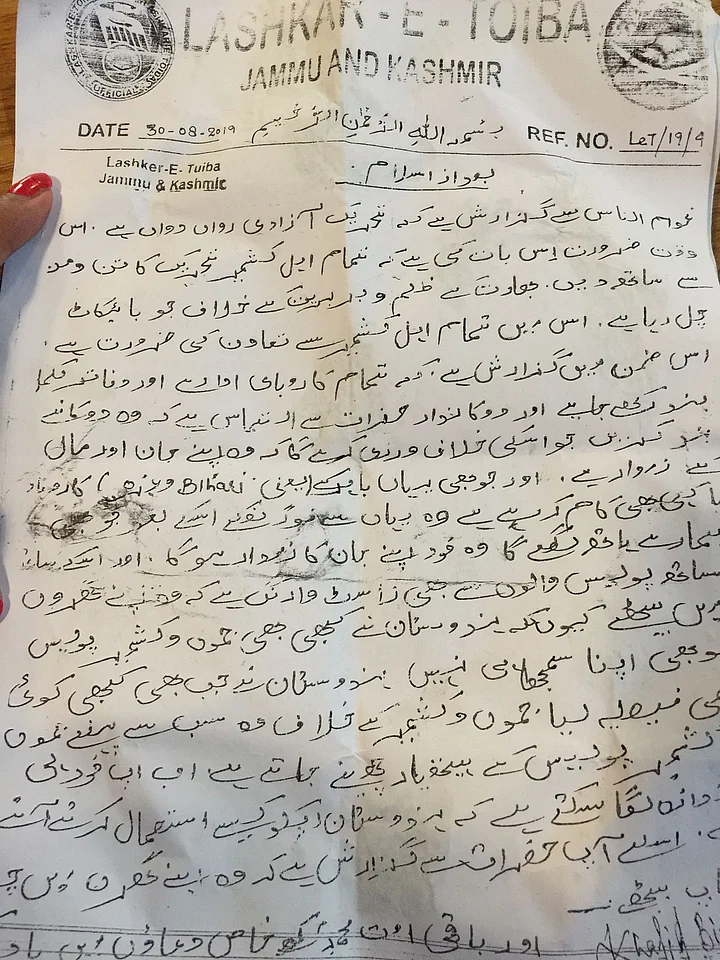‘Amri’, an exquisite indigenous variety of apple grown in Kashmir, has a shelf life of around six months. “It will outlast any hartaal here,” Shabbir (name changed) says with a rueful smile. He has converted his fruit shop into a small roadside stall in Khanyar, Srinagar. The downtown markets remain shut for most part of the day.
However, it is Kashmir’s apple story that looks bigger than any other story in the region at the moment, believe it or not.
Let’s look at some numbers first.
How Effective are Militant Threats to Orchard Owners?
It is impossible to miss the fruit-laden trees lining the road from Srinagar to Shopian. At this time of the year, the fruit is near-ripening. In another twenty days, the harvest will begin––just in time for the festival season when the demand for the fruit soars. The orchard air, however, is mixed with whiffs of fear and anxiety.
The Quint spoke to three orchard owners in South Kashmir, all of whom expressed their anguish about the abrogation of Article 370. One of them was a Kashmiri Pandit.
In Pulwama and Shopian districts, there have been several incidents of militants threatening the owners and workers away from working in the orchards. On 7 August, militants went a step ahead and opened fire on the family of an influential apple trader, Abdul Hameed Rather, in Dangerpora area of Sopore. Rather’s son Arshid, 26, and granddaughter Usma Jan, 2, along with two workers have been shot at, and are undergoing treatment.
Rather was asked by some unidentified men to stop his trading activities some days ago. He paid a price for his defiance just like the wholesaler in Parim Pora who lost his life in a similar attack on 29 August.

Down south, an orchard-owning family of Heff Shirmal in Shopian was visited by a small bunch of unidentified militants last week. The demand was the same: not to engage in any kind of economic activity. This family, however, gave the militants a taste of their own medicine. A crowd of able-bodied men gathered in no time and chased the militants away. Not everyone in Kashmir has this variety of courage, though. The Shopian mandi, one of the two major fruit markets in Kashmir, is deserted at the moment. Every year, it starts operations on 15 September. Whether its operations are going to be impacted owing to the fear unleashed by militants, remains to be seen.
Apple Trade ‘Funds’ Radical Outfits
The districts of Sopore and Shopian are also the strongholds of Jamaat-e-Islami, a banned religio-political organisation. The first amir of JIJK, Sa'aduddin Tarabali––a protégé of Jamaat-e-Islami founder and ideologue Maulana Abul Ala Maududi––recruited many a men from Shopian.
The orchard-owning families of Sopore and Shopian have been a big source of funding for the Jamaat and its separatist ambitions. The Heff Shirmal family is also said to have “solid connections” with the Jamaat and thus managed to put the alleged rookies in their place.

A J&K police officer in Shopian shares that despite their leanings, the orchard owners are unlikely to heed the gun-toting cadres at the time of the harvest. “None of them is going to follow the hartaal dictum and incur massive losses.” Shopian market largely caters to the needs of the horticulture industry. Since most of the farming processes are now over and only the crop needs to be harvested, shutting shops in the day time may not hurt the owners much. Once the apple is ready to be plucked, it will be another story.

While there have been warnings from terror outfits like Lashkar-e-Taiba and Hizb-ul-Mujahideen against letting the migrant workers stay in the Valley, approximately 8,000 labourers are present in Shopian district at the moment. In Sopore, too, there are migrant workers who await the harvest month. Shafi Alam, a worker from Bihar, was shot at in Baramulla on 4 September. The orchard labourers, however, are sitting tight despite such targeted threats.

‘Unhappy With 370, But Not Going To Face Losses’
During the floods of 2014, the apple industry incurred a loss of more than Rs 1,000 crores. In 2016, too, the business suffered due to the reign of violence and shutdowns in the aftermath of Burhan Wani’s killing. The orchard owners and other people associated with the industry can little afford another bad year.
The central government also seems to be mindful of this predicament. The National Agricultural Cooperative Marketing Federation of India Ltd (NAFED) will soon start the procurement of apples through a Market Intervention Scheme. Almost half of this year’s produce will be procured by NAFED on higher than current market price. Sources share that the modalities have been finalised and agreement signed.
Since almost 90 percent of the Shopian district is either orchard or forest area, jungle warfare tactics have been adopted for neutralising militants in the region.
Apple orchards of Sopore and Shopian have also been providing the militants of various outfits and foreign terrorists with a safe haven. Joint operations of the Army and the J&K police have rarely been focused on the orchard area for various reasons. “This year, we have changed our strategy and modus operandi,” SSP of Shopian, Sandeep Chaudhary says. Since almost 90 percent of the Shopian district is either orchard or forest area, jungle warfare tactics have been adopted for neutralising militants in the region.
Farooq Khan, one of the advisors to Governor Satya Pal Malik tells The Quint, “Focus on Kashmir’s agriculture, particularly apples, will change its destiny.”
Once emboldened by the funding and support from the apple orchards of Kashmir, will the militants and separatists lose their battle here this time?
(At The Quint, we are answerable only to our audience. Play an active role in shaping our journalism by becoming a member. Because the truth is worth it.)
